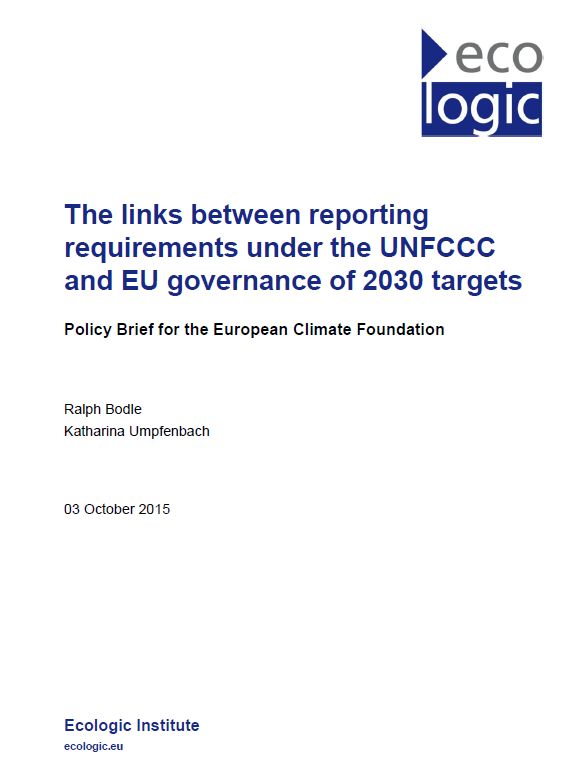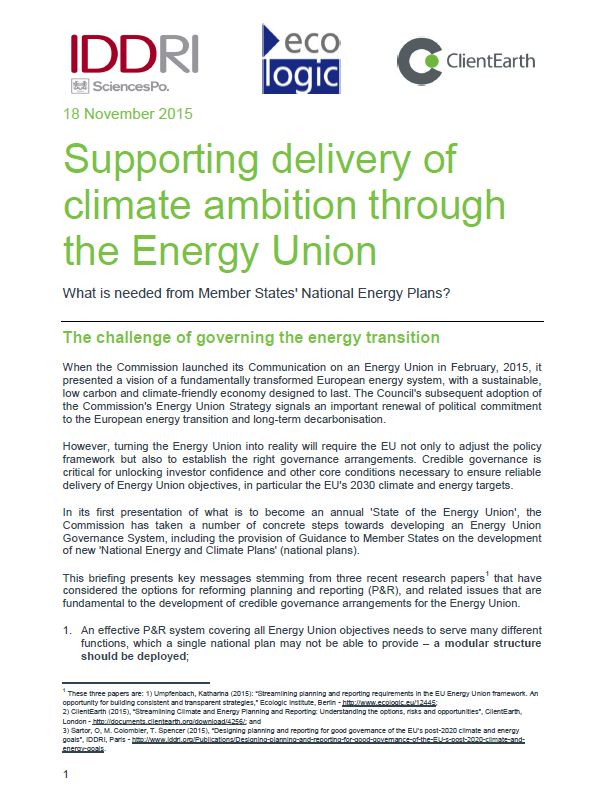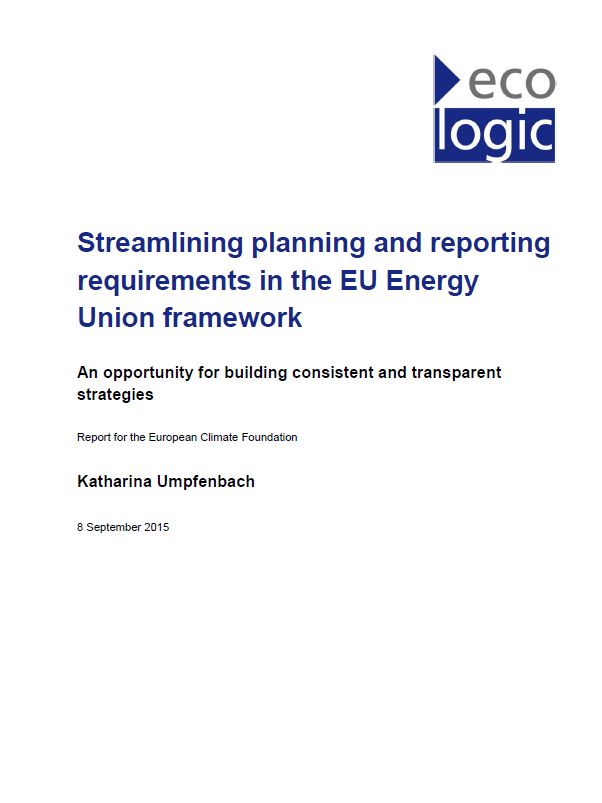The Links Between Reporting Requirements under the UNFCCC and EU Governance of 2030 Targets
- Publication
- Citation
Bodle, Ralph and Umpfenbach, Katharina (2015): The links between reporting requirements under the UNFCCC and EU governance of 2030 targets. Policy Brief for the European Climate Foundation, Ecologic Institute, Berlin.
Both at the international level and in the European Union, governments are currently negotiating future approaches to mitigating global climate change. In both arenas, a key question is how the institutions will follow up on the implementation of agreed targets and measures. In this debate about appropriate governance tools, planning and reporting requirements occupy a central role. This policy brief by Ralph Bodle and Katharina Umpfenbach explores the relationship between the current and likely future reporting requirements under the United Nations Framework Convention on Climate Change (UNFCCC) and the EU's internal governance system. The policy brief is available for download.
The brief provides an overview of the relationship between the international regime and the EU. It outlines existing measurement, reporting and verification (MRV) requirements at international level and sketches out how they may change after 2020. Subsequently, it explores the implications of these international developments for the ongoing debate about an effective EU 2030 governance regime.
Key messages include:
- It is as yet not clear to what extent the existing international MRV system will be transferred or apply to the post-2020 climate regime that will be based on intended nationally determined contributions (INDCs). But judging from the current pre-Paris state of negotiations, the international MRV regime for the period after 2020 is unlikely to become a driver for a more robust governance system in the EU.
- However, the EU is free to go above and beyond mere compliance with existing international rules. The EU could set examples for "what can work" that could be taken up at the international level.
- Arguments in favour of "light touch" governance at EU level that refer to lower stringency of the UNFCCC system should be refuted, because they misinterpret the relationship between the two governance levels.
- The international governance level has virtually no role in the strategic assessment of which legal instrument(s) to use for implementing streamlined planning and reporting at EU level






